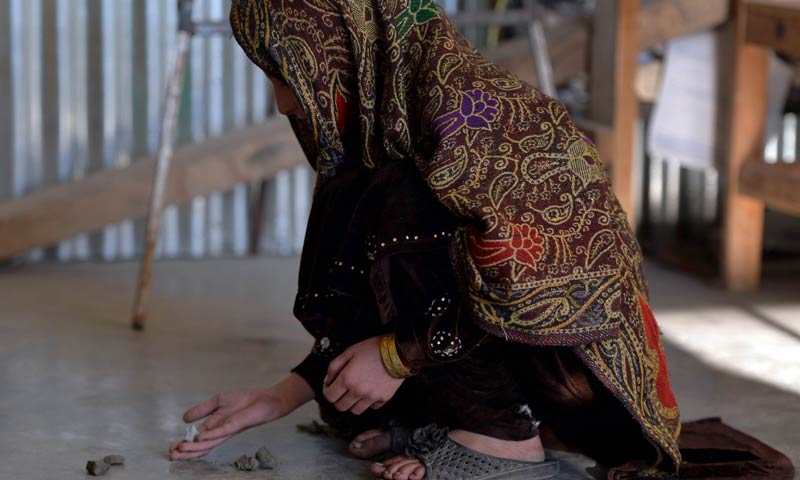Ten-year-old Samina says she was ‘married off’ even before she was born. Proud of the fact, she expresses romantic excitement about becoming a ‘real bride’ very soon.
The little girl has no idea of the horrendous burden she carries. Her husband is 15, and the arrangement was made between the two families as ‘paitlikhi’ (which literally means written in the stomach as both were promised over in marriage while in the womb).
Approximately half of Pakistani women are married before they are 18 years old and nine per cent of the girls begin childbearing between 15 and 19 years, according to Shirkat Gah, an NGO.
Worldwide, approximately 60 million girls are married under the age of 18.
Experts say that if this trend continues, another 100 million minors will be expected to marry over the next 10 years. This means 25,000 new child brides each day for the next 10 years.
Although child marriage affects both the male and female child, the latter suffers the most. In fact, the boys often grow up and remarry.
On the other hand, the female shoulders the responsibilities of being a wife, a sister, daughter-in-law, and very soon a mother. She faces ill-health, the danger of losing her own life or her children’s as well as derision and abuse – mental and physical.
In addition she has limited autonomy, little mobility and in many cases zero economic power. Child marriages also restrict the mental and social development of girls.
Such females are less likely to complete their education and often suffer from poor health because they are burdened with domestic chores and the pressure to reproduce. Pregnancy-related deaths are the leading cause of mortality for girls between the ages of 15 and 19.
Early marriages are far more prevalent in Pakistan’s rural areas, where they are associated with culture and custom.
Veteran human rights activist I.A. Rehman says patriarchy and feudalism rather than Sharia laws are behind serious social crimes.
Sindh is one of the most affected regions in the country and is estimated to have as many as one-thirds, or possibly more, young girls who are forced to get married at an early age, often to men much older than themselves. South Punjab does not lag far behind.
Both these areas are impoverished and research indicates that poverty is a factor behind this tradition. Parents often sell off their young daughters to much older men for prices ranging from Rs140,000 to Rs500,000.
Other reasons include strengthening family ties, reducing the risk of pre-marital affairs, and settling feuds.
More than the lack of implementation of the law, the law itself is a problem. For example, why would anyone be threatened by a 1929 Act, where the punishment is a Rs1,000 fine and a month’s imprisonment?
In an impressive move by the Sindh Assembly two laws have been drafted, the Child Marriage Eradication Act and the Child Marriage Prohibition Act, both of which attempt to raise the minimum age of marriage of a girl from 16 to 18 years (for males it will be 18).
In order to achieve this, the bills have made it compulsory to use CNICs at the nikah to prove the age of the bride and groom; the groom who is above 18 will be eligible for punishment for marrying a minor as will the person conducting the nikah – both will face two years’ imprisonment and a Rs100,000 fine.
Once these new laws are passed (and there is no reason why they will not) and effectively implemented, things will improve somewhat.
The prompt manner in which these bills have been introduced in Sindh Assembly should encourage the other three provinces to follow suit. After all, if our young girls face such a dark future, so will the country.












































